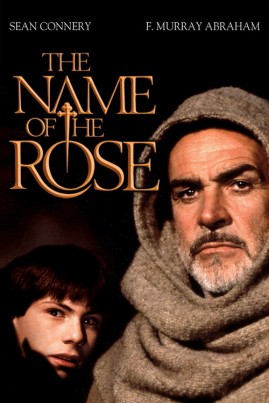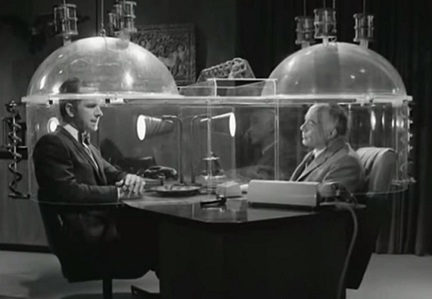 To be clear: I LIKED The Name of the Rose. I admire Eco’s grace with language–hell, the man could write in what, four or five languages with ease? He felt the thrum of narrative in his fingers and his heart. As a reader, I took great pleasure in the rhythm, and danced where I was led.
To be clear: I LIKED The Name of the Rose. I admire Eco’s grace with language–hell, the man could write in what, four or five languages with ease? He felt the thrum of narrative in his fingers and his heart. As a reader, I took great pleasure in the rhythm, and danced where I was led.
But just because I danced does not mean I agree with how this dance went. Two steps in particular irritated me time and again. This is the first.
~*~
In the prologue, the narrator Adso states he’s not going to bother describing people because “nothing is more fleeting than external form.” Fine. I suppose describing a bunch of monks will feel repetitive in some respects. Part of me feels like this is a cheat on Eco’s part, though. This is a record from centuries ago. Imagine your own version of these people while I put words in their mouths. And boy, does he.
Time and time again I find myself turning back pages to figure out who’s talking. Of course, dialogue and rhetoric are lifelines for those in the cloister. Plus, there are hundreds of pages of history to share in order to bring this story to life. That history’s got to come out somehow. Why not in dialogue?
But that means pages upon pages of talking. Just. Talking. If you’re lucky, you get a “William said,” or “the abbot nodded.” While omitting dialogue tags isn’t a sin outright, it DOES become a nuisance when characters often speak for more than a page, and then someone responds with a page’s worth of dialogue, and so on. Readers shouldn’t feel like they’re experiencing the story blindfolded.
On a preferential level, I also find it important to share what on earth characters DO while they talk. How many of us literally stand still and speak to one another for several minutes at a time? Isn’t there other stuff going on around us? The world’s stimuli can open up so many opportunities to learn about a character. Take a bird. Let it fly over the abbey. Let it relieve itself as it flies over some monks. (Hey, I’m a mom of small children. “Poop” is one of the top ten words in this house.) I bet the abbot would be horrified. The oddball Salvatore would have likely laughed and eaten the stuff, or maybe thrown a rock to kill the bird and then eat the bird. And William of Baskerville would have likely raised one of his Connery eyebrows and rubbed the stuff off with snow while never losing his train of thought.
I dig moments like this. Characters don’t speak to one another in the Cone of Silence from Get Smart.

Life is going on around them, and it’s NOT going to leave them alone.
Did Eco miss a mark? Technically no. Adso does state this is a record he wishes to leave for future generations to help record signs of End Times. What would it matter to future scholarly monks if bird droppings landed on an abbot’s head in the 14th century?
Yet I cannot help but wonder what this story could have been had all our senses been engaged.
